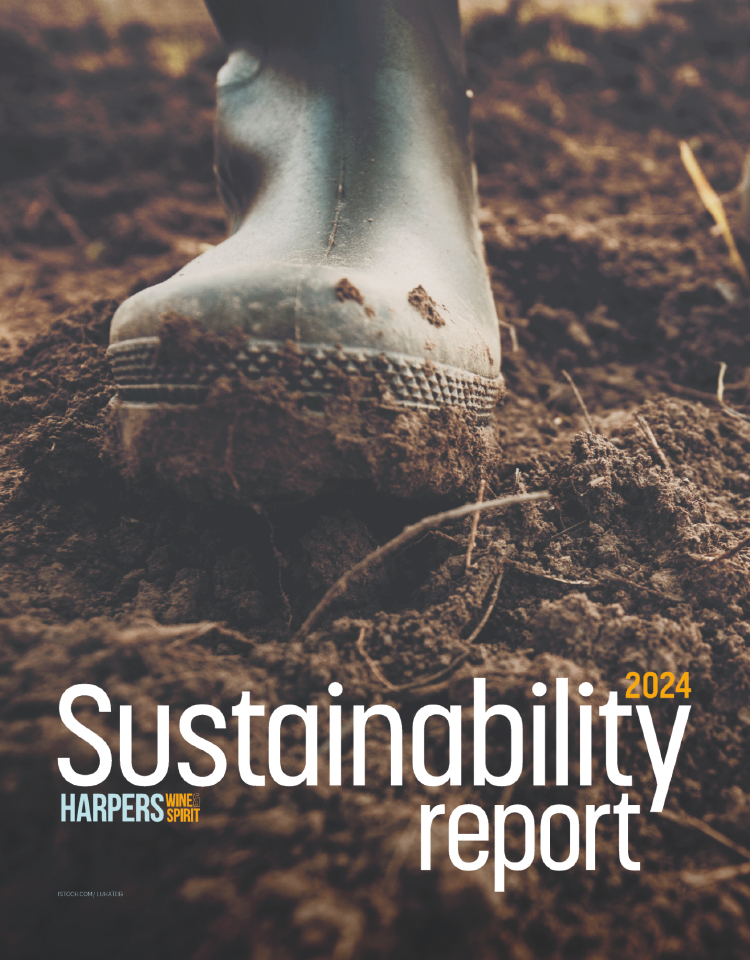
Friday Read: Make vegan wines worthy of everyone’s attention
Rowena Curlewis, CEO of drinks design specialist Denomination, on why plant-based wines need to move beyond their niche appeal and invite all-comers to the party
Everyone is getting in on the vegan-friendly wine scene. Even Hollywood actress Cameron Diaz launched her own brand in the summer. Avaline hit the market with a white and a rosé, and she added a red to the range just shortly after. M&S has said its own lines will be 100% vegan by 2022, and Spar is aiming for the end of 2021.
This primarily involves winemakers switching from animal-based fining products to filter their wines and improve clarity, such as egg whites, casein and gelatine, to vegan-friendly alternatives like pea protein, potato and carbon.
The vegan-friendly plant-based movement has been positioning itself in the mainstream across all sectors increasingly over the past few years, as the health benefits become more widely appreciated and concerns about farming practices and the environment take their place at the top of the agenda.
Just look at meat-substitute brand Impossible Foods, which makes no bones (excuse the term) about the fact that it has carnivores firmly in its crosshairs (according to Nielsen, sales of plant-based meat alternatives were up 83.5% year-on-year in 2019, escalating to 134% during the pandemic period from 1 March through to 29 August).
Now the wine industry is starting to realise it needs to provide the same kind of diversity as other areas of the food and beverage sector, and that for plant-based wines to be truly successful they can’t just be targeted at vegans. You need the carnivores, the pescatarians, the flexitarians and the vegetarians to get involved too. Anyone, in fact, who might prefer drinking wine that hasn’t been produced using animal products.
Yet so much of the branding, design and communications we see are still stuck in a 70s-style loop, when veganism was on the fringes and dismissed as eccentric and faddish. So why the brown, lentily thinking? Vegan-friendly plant-based wines should be celebrated for what they are – contemporary, sexy, forward-thinking and part of the zeitgeist.
We are not worthy
Fourth Wave understood this with the recent launch of its new line. Called Hello!, the brand strategy and packaging identity served as a friendly ‘call-out’ from the shelf, with labelling clearly stating that this is a wine for all, declaring that it’s ‘vegan friendly, vegetarian friendly, pescatarian friendly, carnivore friendly’, etc. In fact, it’s ‘friendly full stop’. The colourways moved away from the earthy tones traditionally associated with this sector, instead opting for pastels that are reassuring, comforting – and completely modern.
Its success lies in the fact that it doesn’t alienate the vegan and vegetarian markets, but it opens its arms to all-comers as well. It also appreciates that not everyone understands wine production processes and so these things need to be made crystal clear on pack.
SOLA power
A look at the latest SOLA report reveals why winemakers can’t afford to ignore this trend, and why they should respond to it appropriately. It states that the ‘tide is rising for all Sustainable, Organic, Lower Alcohol and other alternative wines (SOLA)’. That includes plant-based vegan varietals.
With the shift of ethical consumerism from niche to mainstream, consumers are now increasingly paying attention to the impact that their purchasing habits have on their health and that of the environment generally. This global health and wellness trend appears to be a primary driver for the increased appreciation of SOLA wines. As more consumers push for clarity around the issue of production values, so the demand for openness on labels and general brand communications increases. And that’s across the board – not just people already engaged with a vegan lifestyle.
A shot of inspiration
It’s worth looking beyond the wine sector, too, for modern approaches to ‘worthy’ ambitions. Absolut Vodka, for example, hit the nail on the head with its Green Hustle collaboration. It was all about transparency and encouraging greener practices when it came to making cocktails, etc.
Senior brand manager Dan Flecker had the following to say: “The Green Hustle reflects our belief that brands should be transparent and responsible about their production practices. Absolut is proud of its production process, which use circular business practices to minimise the impact on the environment and local communities; we are the world’s largest carbon neutral distillery and practice the words that we preach from grain to bottle and beyond.”
Take down barriers
Winemakers need to remove obstacles, dissipate cliques and spread brand awareness as far and wide as possible – but without losing relevance to those people who see themselves as part of a specific demographic. Sticking to accepted design tropes will only service to narrow the remit, which makes little sense.
With one in six new food products launched in the UK being plant-based, and around £443 million a year spent on vegetarian and vegan goods, hippie clichés are way off pitch. You could even say they’re a bit ‘far out’.






